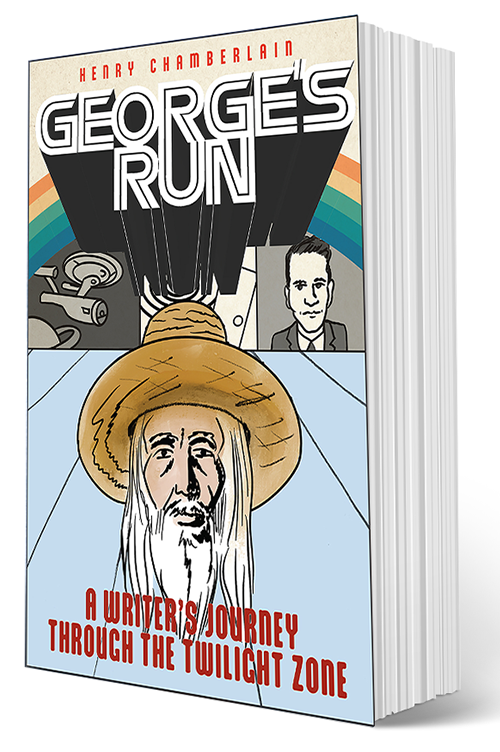
The Suspension of Disbelief by Julia Wald
I ask that you keep going on this journey with me. I have been carving this niche for years and I feel like I’ve got it at quite a cozy level with just the right content and pacing. That said, it’s time for another thoughtful interview. For my video interviews, I add here a few notes and observations. Traditional journalism, like hard news reportage, will take an interview and create a concise summation. Some magazines are known for their long sprawling interviews where everything is transcribed. Of course, we also have a long tradition of various talk show formats, some thoughtful and some that are so casual as to blur right in with a dance segment on Tik Tok. Hey, I have nothing against fun and entertainment and I’ll engage in that when it makes sense. But, for interviews, I take them seriously, prepare for them, take off my Joe Cool hat and don’t engage in any dancing. Although, in a metaphorical sense, a good interview is sort of like a dance. The person conducting the interview leads while the person who is the subject of the interview goes about picking up one cue after another and making something out of it.

A bus driver finds solace through the suspension of disbelief.
Anyway, I say all this because it’s particularly relevant to this interview. Essentially, this is an interview about interviews: how to conduct one, what it means, what you attempt to get out of it. I interviewed Julia Wald about her new book, The Suspension of Disbelief (review), an illustrated collection of interviews she conducted about life and work during Covid-19. In the course of the interview, we ended up talking about what it means when you’re working at a restaurant during a world-wide pandemic and suddenly it’s like all the lights are out and then, just as suddenly, you are out of a job, your source of income. We discuss who might have stepped in to help and who didn’t.

A disadvantaged man finds hope through knowledge.
And, finally, once an artistic and talented person is inspired to create a book about Covid-19, what responsibility, if any, does she have to the vulnerable people she has interviewed? Well, part of the answer goes back to the dance. If the dance partners have established a sense of trust, then there’s a very good chance that something worthwhile will result that everyone can be proud of. We focus in a bit on American journalist Studs Terkel (1912-2008), the icon of what came to be known as “literary journalism.” Terkel was most active from the 1950s to 1990s, creating his seminal collection of interviews, Working, in 1974. He was part of that old-fashioned gumshoe journalist/creative tradition: loyal to his readers and listeners, to his Chicago, and to the art and craft of journalism. Julia says that Terkel inspired her on her Covid-19 project and it shows and, ultimately, it demonstrates that she did right by all who she interviewed. Julia did it the right way, the old-fashioned way that involves hard work and integrity. It’s the best way. And it’s what inspires me to keep going on this journey.
Visit Julia Wald right here.
The Suspension of Disbelief is available at Push/Pull.


















 The Complete Hate from Fantagraphics is available November 24, 2020. Book One (HATE 1-15) focuses on young Buddy Bradley’s travails in early 1990s Seattle. Book Two (HATE 16-30) focuses on Buddy and his girlfriend Lisa Leavenworth’s move back to Buddy’s native New Jersey (and a switch from black-and-white to full color). Book Three (HATE Annuals 1-9) features the final arc of Bagge’s magnum opus, as Buddy and Lisa become parents (and buy a garbage dump). Each volume, along with the slipcase, contains new covers, endpapers, title pages, and other surprises by Bagge.
The Complete Hate from Fantagraphics is available November 24, 2020. Book One (HATE 1-15) focuses on young Buddy Bradley’s travails in early 1990s Seattle. Book Two (HATE 16-30) focuses on Buddy and his girlfriend Lisa Leavenworth’s move back to Buddy’s native New Jersey (and a switch from black-and-white to full color). Book Three (HATE Annuals 1-9) features the final arc of Bagge’s magnum opus, as Buddy and Lisa become parents (and buy a garbage dump). Each volume, along with the slipcase, contains new covers, endpapers, title pages, and other surprises by Bagge.

























